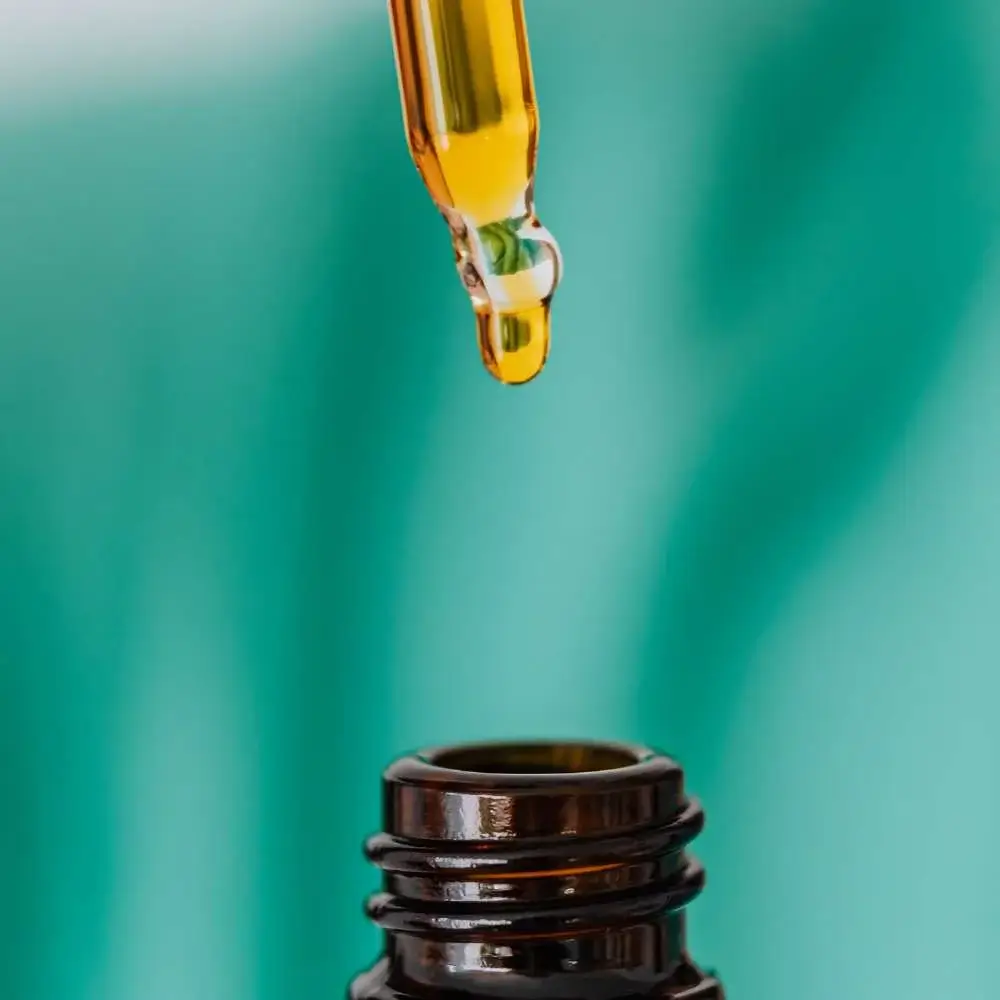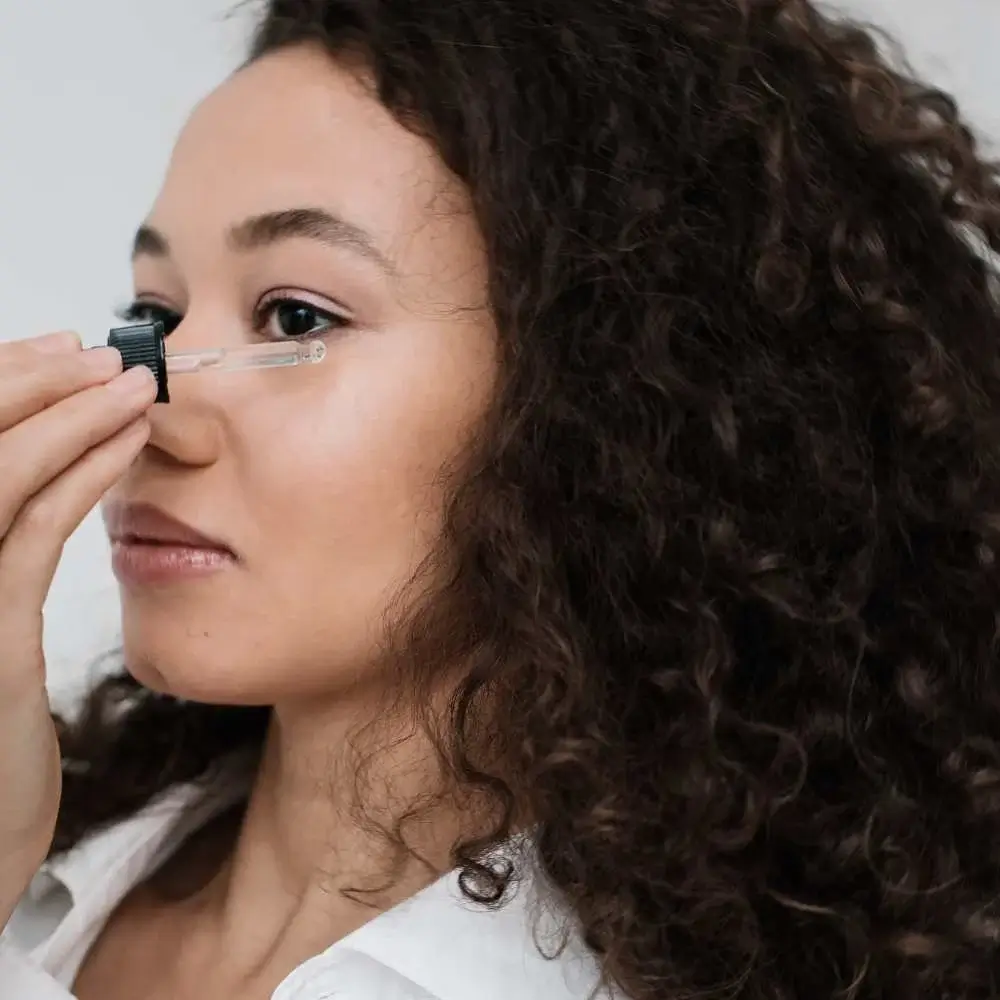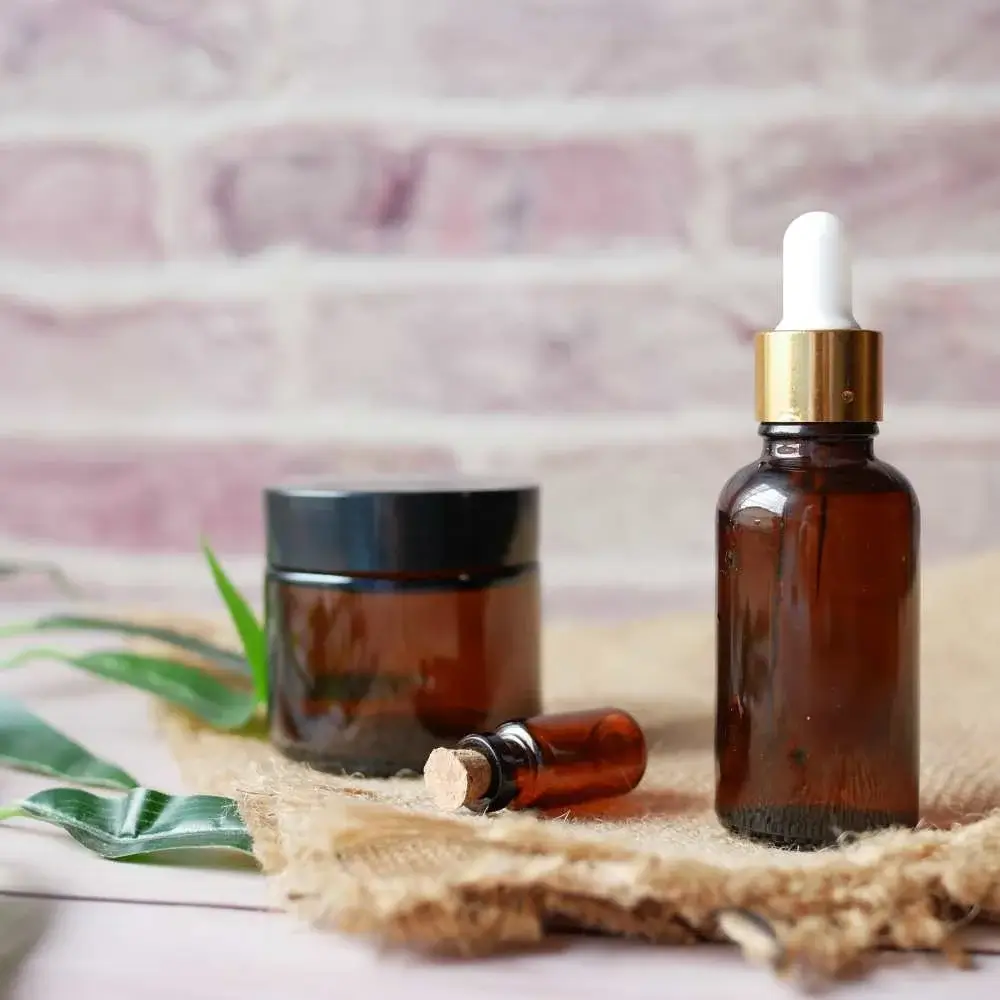Ah, facial oils. The mere mention of these magical elixirs can make some people's skin crawl with the thought of slathering oil on their faces. But fear not, dear reader, for we are here to dispel those oily myths and show you the light! Facial oils are not only essential for maintaining healthy, radiant skin, but they also come with a myriad of benefits that will make you wonder how you ever lived without them.
So, buckle up and get ready for a wild ride into the world of facial oils, where we'll explore their importance, benefits, and why you should be adding them to your skincare routine pronto.
In the vast sea of skincare products, facial oils hold a special place as the unsung heroes of hydration and nourishment. These potent potions are packed with essential fatty acids, vitamins, and antioxidants that work together to provide your skin with the TLC it deserves.
You see, our skin has a natural lipid barrier that helps lock in moisture and protect it from external aggressors like pollution and UV rays. However, this barrier can become compromised due to factors like aging, harsh weather, and even your daily skincare routine (looking at you, overzealous exfoliators). That's where facial oils come to the rescue! They help replenish and strengthen this barrier, ensuring your skin stays supple, healthy, and oh-so-glowy.

Still not convinced? Let's dive into some of the fantastic benefits these liquid golds have to offer:
Hydration Hero: As mentioned earlier, facial oils are masters of locking in moisture and preventing transepidermal water loss. Say goodbye to dry, flaky skin, and hello to a dewy, hydrated complexion!
Nourishment Central: Packed with vitamins, antioxidants, and essential fatty acids, facial oils deliver essential nutrients to your skin, keeping it nourished and healthy.
Anti-Aging Ally: Many facial oils are rich in antioxidants that help fight free radicals, which are responsible for premature aging. Incorporating them into your routine can help stave off those pesky fine lines and wrinkles.
Soothing Sensation: If you have sensitive or irritated skin, certain facial oils can help calm and soothe inflammation, providing much-needed relief.
Glow Getter: Who doesn't want that coveted lit-from-within glow? Facial oils can help even out your skin tone and texture, leaving you with a radiant, luminous complexion.

Understanding Facial Oils
Embarking on a journey to discover the world of facial oils can be both exciting and overwhelming. With so many options and types available, it's essential to understand what facial oils are, their composition, and how they can benefit your skin. In this section, we'll break down the different types of facial oils and guide you in finding the perfect match for your skin type.
What Are Facial Oils?
Facial oils are concentrated liquids derived from plants, seeds, nuts, or fruits that are packed with nutrients, vitamins, and fatty acids. They work by nourishing, hydrating, and protecting the skin, helping to maintain its natural barrier function. Facial oils are lipophilic, meaning they have an affinity for oil, allowing them to penetrate the skin more effectively and deliver their benefits deep within the skin layers.
Different Types of Facial Oils
There are various categories of facial oils, each with its unique properties and suitability for different skin types. Let's dive into the primary types of facial oils: botanical oils, essential oils, and carrier oils.
Botanical Oils
Botanical oils, also known as plant oils or vegetable oils, are derived from the seeds, nuts, or fruits of plants. They are rich in essential fatty acids, vitamins, and antioxidants, making them highly nourishing and beneficial for the skin. Some popular botanical oils include:
- Argan oil: Extracted from the nuts of the argan tree, this oil is rich in vitamin E and essential fatty acids. It's excellent for moisturizing and softening the skin, making it suitable for dry and mature skin types.
- Jojoba oil: Technically a wax ester, jojoba oil closely resembles the natural sebum produced by our skin. This makes it an excellent option for balancing oil production in oily and acne-prone skin while still providing hydration for dry skin.
- Rosehip oil: Derived from the seeds of wild rose bushes, rosehip oil is packed with vitamins A and C, making it a powerful option for brightening the skin, reducing hyperpigmentation, and promoting collagen production.

Essential Oils
Essential oils are highly concentrated aromatic compounds extracted from plants through steam distillation or cold pressing. They have various therapeutic properties and can be beneficial for the skin when used in small amounts and diluted with carrier oil. Some popular essential oils for skin care include:
- Tea tree oil: Known for its antibacterial and anti-inflammatory properties, tea tree oil can be an effective option for treating acne-prone skin.
- Lavender oil: With its soothing and calming properties, lavender oil can help reduce redness and inflammation in sensitive or irritated skin.
- Frankincense oil: This ancient oil has anti-aging benefits, helping to reduce the appearance of fine lines and wrinkles while promoting a more even skin tone.
Carrier Oils
Carrier oils, also known as base oils, are used to dilute essential oils before applying them to the skin. They are typically derived from the fatty parts of plants, such as seeds, nuts, or kernels, and contain vitamins, minerals, and essential fatty acids. Some common carrier oils include:
- Sweet almond oil: Lightweight and easily absorbed, sweet almond oil is an excellent choice for most skin types. It's rich in vitamins A and E, which can help improve skin tone and texture.
- Grapeseed oil: High in linoleic acid, grapeseed oil is suitable for oily and acne-prone skin, as it can help regulate sebum production and reduce inflammation.
- Avocado oil: A thicker, more nourishing oil, avocado oil is ideal for dry or mature skin. It contains vitamins A, D, and E, along with essential fatty acids, which help to hydrate and protect the skin.
Understanding the various types of facial oils and their unique properties can help you make an informed decision when choosing the perfect oil for your skincare needs. Whether you have oily, dry, or sensitive skin, there's a facial oil out there that can help you achieve a healthy, radiant complexion.

Factors to Consider When Choosing Facial Oils
Navigating the world of facial oils can be a bit overwhelming, but fear not! To help you find the perfect oil for your skin, we've put together a list of factors to consider when choosing facial oils. From understanding your skin type and concerns to evaluating ingredients, absorption, and scent, we've got you covered.
Skin Type and Concerns
Before diving into the vast array of facial oils, it's crucial to understand your skin type and any concerns you may have. This will help you choose the most suitable facial oil for your needs. Here's a breakdown of different skin types and common concerns, along with recommendations for compatible facial oils:
1. Dry skin often feels tight or flaky due to a lack of natural oils or moisture. Look for facial oils that are rich in nourishing ingredients, like:
- Argan oil: Rich in vitamin E and essential fatty acids, ideal for moisturizing and softening the skin.
- Avocado oil: A thicker, more nourishing oil that hydrates and protects the skin.
2. Oily skin is characterized by excess sebum production, which can lead to clogged pores and acne. Opt for lightweight oils that help balance oil production, such as:
- Jojoba oil: Resembles the skin's natural sebum, making it suitable for regulating oil production.
- Grapeseed oil: High in linoleic acid, it helps reduce inflammation and control sebum production.
3. Combination skin has both oily and dry areas, requiring a balanced approach. Look for oils that provide hydration without clogging pores, like:
- Squalane: A lightweight, non-comedogenic oil derived from plants that provide hydration without causing breakouts.
- Marula oil: Rich in antioxidants and fatty acids, it absorbs quickly without leaving a greasy residue.
4. Sensitive skin can be prone to redness, irritation, or allergies. Choose soothing and calming oils, such as:
- Calendula oil: Known for its anti-inflammatory properties, helps soothe and calm irritated skin.
- Chamomile oil: Provides gentle relief for sensitive skin with its soothing and anti-inflammatory effects.
Ingredients to Look For
When choosing a facial oil, pay attention to the key ingredients and their benefits. Some noteworthy ingredients include:
- Hyaluronic acid: A powerful humectant that attracts and retains moisture, providing deep hydration for all skin types.
- Jojoba oil: Balances oil production and provides hydration for both oily and dry skin.
- Rosehip oil: Brightens the skin, reduces hyperpigmentation, and promotes collagen production.

Absorption and Texture
Consider the absorption rate and texture of facial oils when making your selection. Lightweight oils absorb quickly and work well for oily or combination skin, while heavier oils provide more intense hydration for dry or mature skin. Experiment with different oils to find the one that feels best on your skin.
Scent and Sensitivity
Fragrances in facial oils can be a concern for those with sensitive skin or allergies. Some essential oils may cause irritation, so opt for fragrance-free or hypoallergenic options if you have sensitivities. Always patch-test new products to ensure they're compatible with your skin.
Understanding your skin type, concerns, and personal preferences can help you choose the perfect facial oil. By considering factors like ingredients, absorption, and scent, you'll be well on your way to finding a facial oil that leaves your skin looking and feeling its best.
Our List of the Top Products in This Category
- Pearlessence Rosehip Balancing Facial Oil
- KORA Organics Noni Glow Plumping Face Oil
- SheaMoisture Overnight Face Oil
- Face Oil, Burt's Bees Hydrating & Anti-Aging Facial Care
- OM ORGANICS Marula + Cactus Nourishing Face Oil
- Ancient Greek Remedy Body & Facial Oil

Throughout our exploration of facial oils, we've discovered their importance and the vital role they play in maintaining healthy, radiant skin. From hydration and nourishment to soothing irritation and addressing specific skin concerns, facial oils offer a myriad of benefits that make them an essential addition to any skincare routine.
As you embark on your journey to find the perfect facial oil, remember to consider your skin type, concerns, and personal preferences. Whether you have dry, oily, combination, or sensitive skin, there's a facial oil out there that can help you achieve your desired results. By paying attention to factors like ingredients, absorption, texture, and scent, you'll be well-equipped to make an informed choice that caters to your unique needs.
So go forth and embrace the world of facial oils with confidence, knowing that you're one step closer to unlocking the secret to beautiful, glowing skin. Your complexion will thank you!

FAQs about Facial Oil
What are facial oils?
Facial oils are nourishing, hydrating, and soothing skincare products derived from natural plant oils or synthetic sources, designed to improve skin health.
How do I choose the best facial oil for my skin type?
Consider your skin type (dry, oily, combination, sensitive), specific concerns, and personal preferences when choosing a facial oil. Opt for ingredients that address your unique needs.
Can I use facial oils if I have oily skin?
Yes, certain lightweight, non-comedogenic oils like jojoba or grapeseed oil are suitable for oily skin as they help balance sebum production.

How do I apply facial oil?
After cleansing and toning, warm a few drops of oil between your fingertips and gently press onto your face, neck, and décolletage in an upward motion.
When should I apply facial oil in my skincare routine?
Apply facial oil after serums and before moisturizers to help seal in hydration and maximize the benefits of other skincare products.
Can I mix facial oil with my moisturizer?
Yes, you can mix a few drops of facial oil with your moisturizer to enhance its hydrating and nourishing properties.

Are facial oils safe for sensitive skin?
Opt for calming and soothing oils like calendula or chamomile, and always patch test new products to ensure compatibility with sensitive skin.
How often should I use facial oil?
Most facial oils can be used daily, morning or night, depending on your skin's needs and personal preferences.

Can facial oils help with anti-aging?
Some facial oils, like rosehip oil, contain antioxidants and promote collagen production, which can help reduce signs of aging and improve skin elasticity.
Do facial oils cause breakouts?
Non-comedogenic facial oils, such as squalane and jojoba oil, are less likely to clog pores and cause breakouts. Choose oils based on your skin type.







